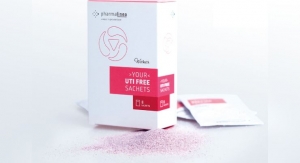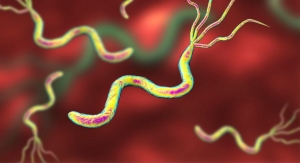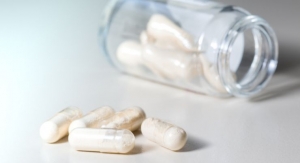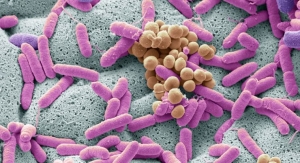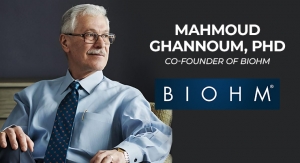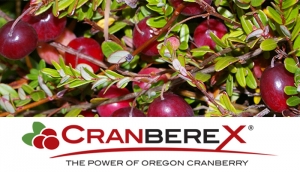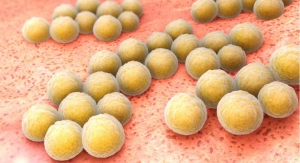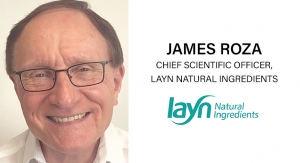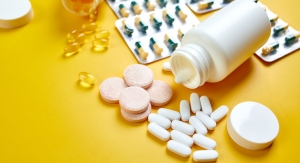05.03.17
NSF International has developed an independent certification protocol—Raised Without Antibiotics—to certify animal products have been raised without exposure to antibiotics. The new certification protocol will help consumers identify products that do not contribute to the growth of antibiotic-resistant bacteria.
NSF International’s Raised Without Antibiotics certification can be granted to a wide variety of animal products, including meat, poultry, seafood, dairy, eggs, leather and certain supplement ingredients. The certification provides independent verification of on-package claims and is the only “raised without antibiotics” certification that covers all animal products, according to the organization.
“A growing number of consumers are concerned about the widespread development of antibiotic-resistant bacteria and the use of antibiotics in food production,” said Sarah Krol, global managing director of food safety product certification, NSF International. “NSF International’s Raised Without Antibiotics certification gives consumers an easy way to identify and purchase animal products that have been raised without exposure to antibiotics, which may help alleviate their concerns.”
A 2016 survey conducted for NSF International found that 59% of consumers prefer products from animals raised without antibiotics. But, without an independent, transparent protocol and certification process, consumers have not been able to verify claims made by marketers until now, NSF said.
Betagro Group in Thailand, a large supplier of chicken to consumers in Asia and Europe, is the first company to earn NSF International’s Raised Without Antibiotics certification.
“Our S-Pure brand chickens are selected with great care and raised in a way that maintains optimal health without the use of antibiotics,” said Vasit Taepaisitphongse, president of Betagro Group. “We want our customers to have confidence in our Raised Without Antibiotics products. That’s why receiving an independent and objective certification from NSF International was very important to us.”
NSF International developed the Raised Without Antibiotics protocol in partnership with the food animal industry and veterinary stakeholders. Under the program, animals cannot be certified if they have received antibiotics. The use of ionophore chemical coccidiostats, which are not considered contributors to antimicrobial resistance, may be permitted to prevent infections, depending on labeling regulations in the region of product sale.
The program also encourages preventive measures such as vaccination, alternative treatments, litter management techniques and appropriate stocking density to maintain the health and welfare of the animals. If sick animals require antibiotics for treatment, they can receive veterinary care but must be removed from the Raised Without Antibiotics program.
The spread of antibiotic-resistant bacteria has been recognized as a high-priority public health concern by the World Health Organization (WHO), the United Nations (UN), the European Centre for Disease Prevention and Control (ECDC) and the U.S. Centers for Disease Control and Prevention (CDC). In recent years, public health officials in the United Kingdom, Europe and North America have voiced serious concerns about the overuse of antibiotics in livestock production. When antibiotics are overused on the farm, drug-resistant bacteria can develop in the animal population. These antibiotic-resistant bacteria can then spread to humans via improperly handled or cooked meat products, contaminated food crops and direct contact with livestock.
In the United States, the U.S. Food and Drug Administration (FDA) has issued voluntary guidelines for the reduction of antibiotic usage in livestock production along with a mandatory elimination of over-the-counter sales of antibiotics for livestock. Effective in 2017, a veterinary prescription is now required for antibiotic use in animals raised in the United States. In the European Union (EU), a ban on the use of antibiotics as growth promoters in animal feed has been in effect since 2006. However, farmers can still use antibiotics for veterinary purposes. A recent report from the European Medicines Agency (EMA) shows an alarming increase in the agricultural and veterinary use of antibiotics deemed “critically important” for human medicine. According to the EMA, antibiotics used in livestock production account for three times the quantity of antibiotics dispensed to Europe’s human population.
Learn more about NSF International’s Raised Without Antibiotics program during the following informational webinar: Wednesday, June 21, 2017 from 9:30 to 10 a.m. U.S. Pacific Time.
NSF International’s Raised Without Antibiotics certification can be granted to a wide variety of animal products, including meat, poultry, seafood, dairy, eggs, leather and certain supplement ingredients. The certification provides independent verification of on-package claims and is the only “raised without antibiotics” certification that covers all animal products, according to the organization.
“A growing number of consumers are concerned about the widespread development of antibiotic-resistant bacteria and the use of antibiotics in food production,” said Sarah Krol, global managing director of food safety product certification, NSF International. “NSF International’s Raised Without Antibiotics certification gives consumers an easy way to identify and purchase animal products that have been raised without exposure to antibiotics, which may help alleviate their concerns.”
A 2016 survey conducted for NSF International found that 59% of consumers prefer products from animals raised without antibiotics. But, without an independent, transparent protocol and certification process, consumers have not been able to verify claims made by marketers until now, NSF said.
Betagro Group in Thailand, a large supplier of chicken to consumers in Asia and Europe, is the first company to earn NSF International’s Raised Without Antibiotics certification.
“Our S-Pure brand chickens are selected with great care and raised in a way that maintains optimal health without the use of antibiotics,” said Vasit Taepaisitphongse, president of Betagro Group. “We want our customers to have confidence in our Raised Without Antibiotics products. That’s why receiving an independent and objective certification from NSF International was very important to us.”
NSF International developed the Raised Without Antibiotics protocol in partnership with the food animal industry and veterinary stakeholders. Under the program, animals cannot be certified if they have received antibiotics. The use of ionophore chemical coccidiostats, which are not considered contributors to antimicrobial resistance, may be permitted to prevent infections, depending on labeling regulations in the region of product sale.
The program also encourages preventive measures such as vaccination, alternative treatments, litter management techniques and appropriate stocking density to maintain the health and welfare of the animals. If sick animals require antibiotics for treatment, they can receive veterinary care but must be removed from the Raised Without Antibiotics program.
The spread of antibiotic-resistant bacteria has been recognized as a high-priority public health concern by the World Health Organization (WHO), the United Nations (UN), the European Centre for Disease Prevention and Control (ECDC) and the U.S. Centers for Disease Control and Prevention (CDC). In recent years, public health officials in the United Kingdom, Europe and North America have voiced serious concerns about the overuse of antibiotics in livestock production. When antibiotics are overused on the farm, drug-resistant bacteria can develop in the animal population. These antibiotic-resistant bacteria can then spread to humans via improperly handled or cooked meat products, contaminated food crops and direct contact with livestock.
In the United States, the U.S. Food and Drug Administration (FDA) has issued voluntary guidelines for the reduction of antibiotic usage in livestock production along with a mandatory elimination of over-the-counter sales of antibiotics for livestock. Effective in 2017, a veterinary prescription is now required for antibiotic use in animals raised in the United States. In the European Union (EU), a ban on the use of antibiotics as growth promoters in animal feed has been in effect since 2006. However, farmers can still use antibiotics for veterinary purposes. A recent report from the European Medicines Agency (EMA) shows an alarming increase in the agricultural and veterinary use of antibiotics deemed “critically important” for human medicine. According to the EMA, antibiotics used in livestock production account for three times the quantity of antibiotics dispensed to Europe’s human population.
Learn more about NSF International’s Raised Without Antibiotics program during the following informational webinar: Wednesday, June 21, 2017 from 9:30 to 10 a.m. U.S. Pacific Time.

